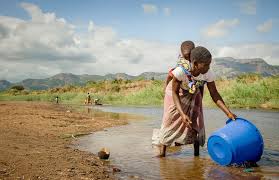In the northern parts of Nigeria, drought is silently killing agriculture and livelihoods. The Lake Chad Basin, once a source of water and livelihood for millions, has shrunk by over 90% since the 1960s. This decline has left farmers and herders in Borno, Yobe, and Adamawa states struggling to survive.
The Sahel region, where northern Nigeria lies, is highly vulnerable to climate change. Rising temperatures and erratic rainfall have turned fertile land into barren deserts. Farmers who once grew millet, sorghum, and maize are now abandoning their fields as crops fail. Herders are also losing their livestock due to water scarcity and shrinking grazing land. This has led to frequent clashes between farmers and herders over dwindling resources.
The drought crisis is also fueling insecurity. Boko Haram and other insurgent groups exploit the desperation of people in these areas, recruiting young men who see no other way to survive. This cycle of poverty, conflict, and climate change is tearing apart northern Nigeria.
To address this, Nigeria must invest in climate-smart agriculture, such as drought-resistant crops and efficient irrigation systems. The Great Green Wall initiative, which aims to restore degraded land across Africa, needs to be prioritized. Nigeria also needs to build water infrastructure like reservoirs and boreholes to provide communities with reliable water sources.
The government must act quickly, or drought will continue to push northern Nigeria further into crisis, leaving its people with no future.

